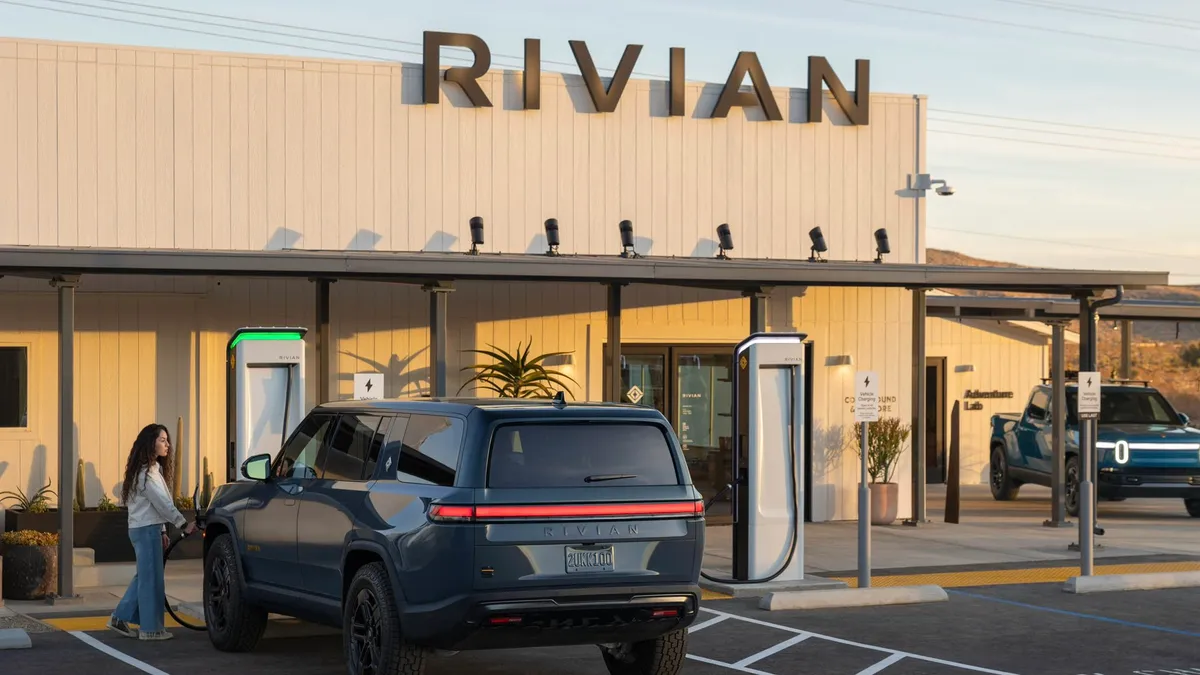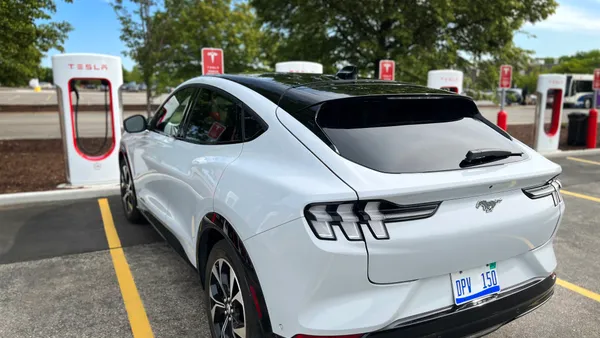Dive Brief
- The Department of Energy on Wednesday shared plans to invest $2 billion from the Inflation Reduction Act to expedite domestic EV manufacturing.
- The act, which contains clean vehicle tax credits for qualifying manufacturers, will now fund cost-shared grants for the domestic production of hybrid, plug-in electric hybrid, fully electric and fuel cell EVs, according to the department.
- The program will prioritize projects to refurbish or retool manufacturing facilities that have recently ceased operations or are expected to close soon.
Dive Insight
The new funding opportunity from the Biden administration is intended to help automakers struggling with the cost of manufacturing EVs.
Automaker Stellantis announced plans to idle an Illinois assembly plant in February due to rising EV production costs.
The high price of producing EVs has hit startups particularly hard. Ohio-based EV startup Lordstown Motors filed for Chapter 11 bankruptcy Tuesday, claiming it was the “only viable option” after contract manufacturer and investor Foxconn failed to deliver on a $170 million investment needed to develop a scalable EV platform.
And California-based startup Rivian laid off 6% of its workforce in February in cost-cutting measures.
The new grant program aims to preserve existing jobs, including union jobs and wages, and “work opportunities that have been powering our automotive economy for decades,” according to the Energy Department.
But as the Biden administration pushes an increasingly tight transition timeline for the auto market to shift to EVs, companies run the risk of falling behind.
In April, the Environmental Protection Agency proposed rules that would require 60% of U.S. vehicle sales to be fully battery-electric by 2030. Auto groups blasted the proposal, with the Alliance for Automotive Innovation saying it “leap-frogs” a 2021 executive order that called for 50% of vehicles to be EVs, including hybrid and fuel cells, by 2030.
The group called the proposal a “de facto battery electric vehicle mandate,” adding the rules are “neither reasonable nor achievable in the timeframe provided.”













